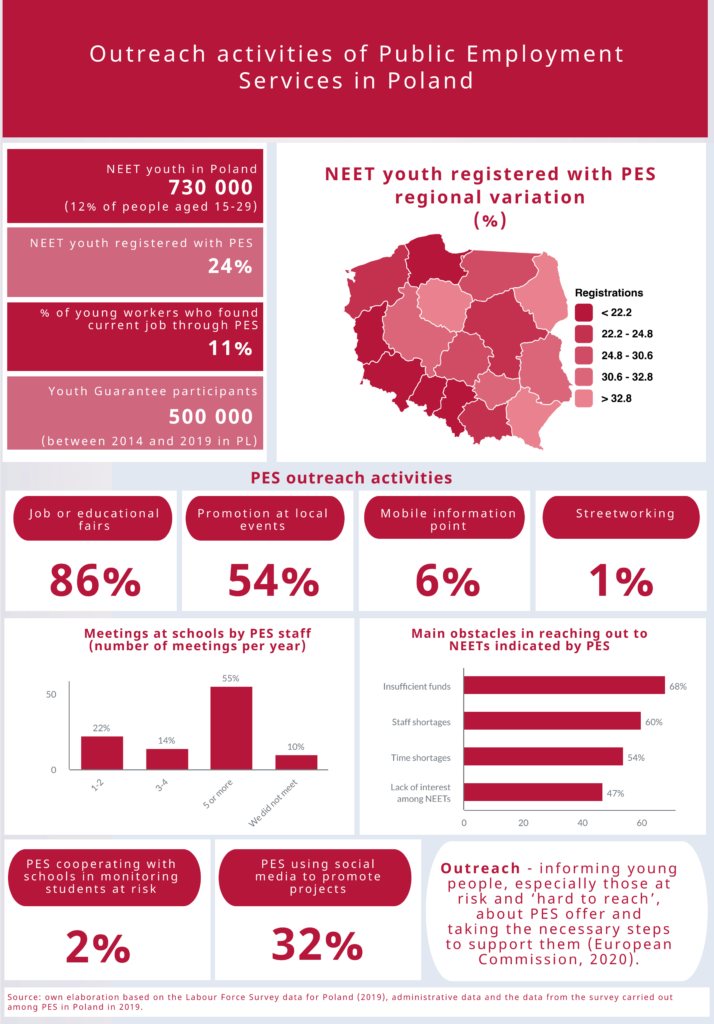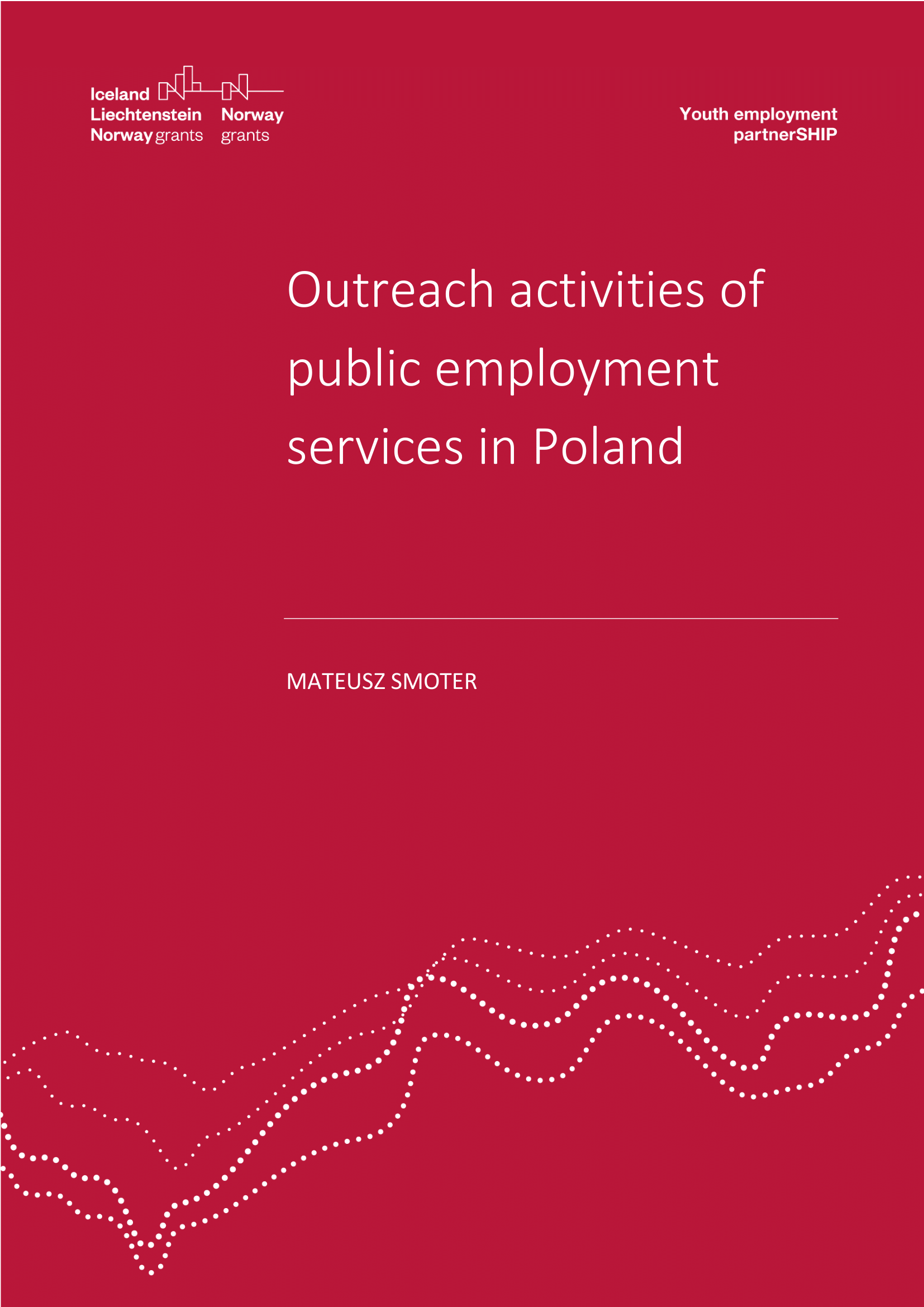Young people not in education, employment, or training (so-called NEETs) rarely register with public employment services, which means that they cannot benefit from the support employment offices can provide. NEETs are often unaware of the projects that are implemented by employment offices. In addition, these young people tend to have a negative perception of the activities of employment offices, and they are often reluctant to register as unemployed for fear of being stigmatized. At the same time, because employment offices engage in only modest promotional activities, information about the support they can provide does not reach some potential beneficiaries. The employment offices rarely use modern channels of communication to reach young people, and they seldom cooperate with local institutions or engage in outreach efforts in rural areas that are far from their respective offices. Thus, the support they offer is promoted to a limited extent only. To increase their outreach, public employment services could intensify and diversify their informational and promotional activities by, for example, actively participating in local events, growing their presence in areas further away from their respective offices, and expanding their networks of cooperation to include institutions that provide assistance to young people needing special support to enter the labor market. Permanent and systematic cooperation with schools, which is currently temporary in nature can also play a significant role in expanding the outreach of public employment services to NEETs.


This publication was created as part of the “Youth Employment PartnerSHIP” project, which seeks to combat unemployment among young people. It measures the effectiveness of instruments to support young people who aren’t working or studying in four countries: Poland, Spain, Italy and Hungary. The project is financed by Iceland, Lichtenstein and Norway through the EEA and Norway Grants Fund for Youth Employment and co-financed from the funds granted for science in 2018-2022 for the implementation of international projects.

